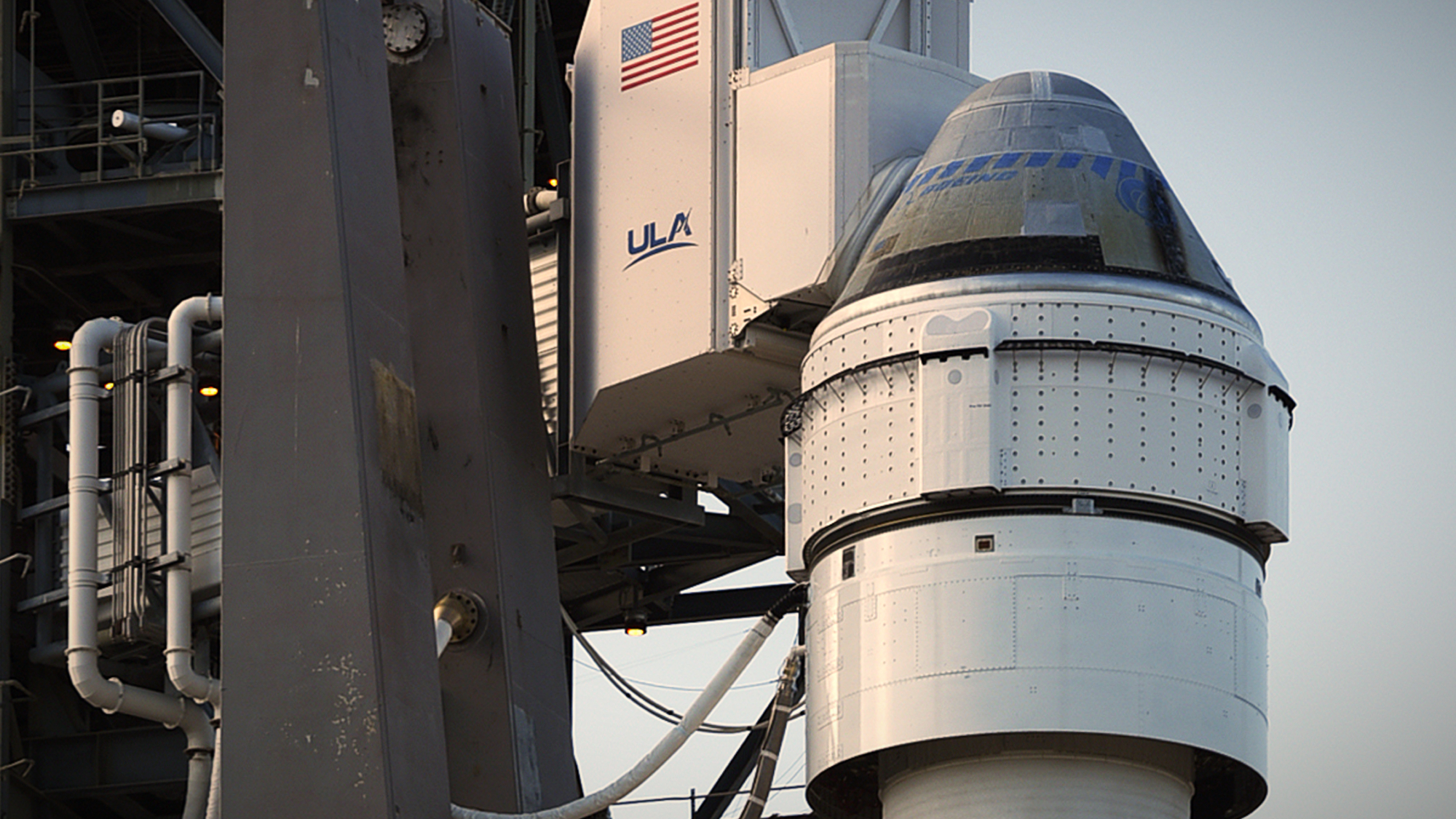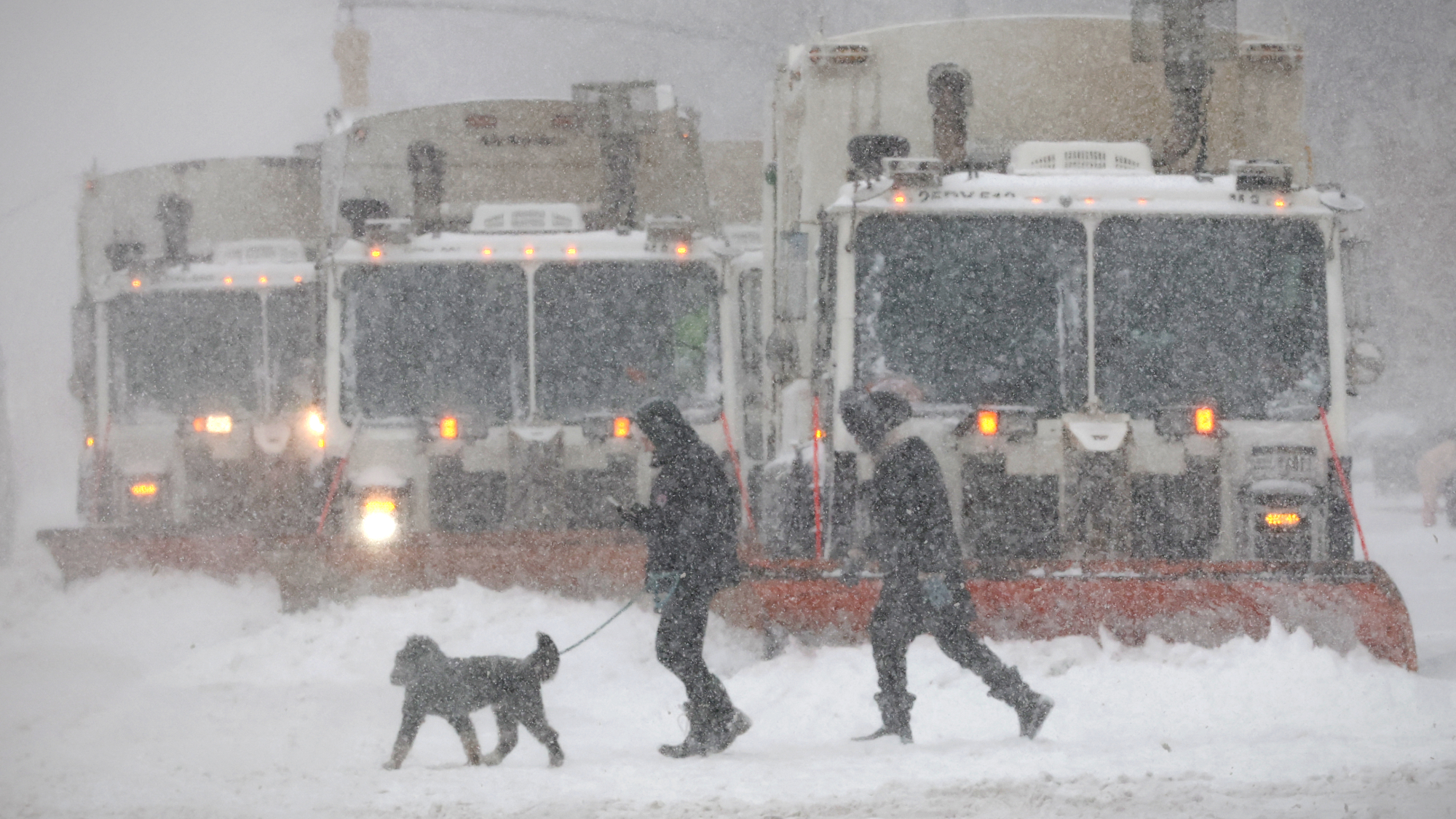Boeing and NASA ready first crewed Starliner flight
Two NASA astronauts are heading to the International Space Station


A free daily email with the biggest news stories of the day – and the best features from TheWeek.com
You are now subscribed
Your newsletter sign-up was successful
What happened
Boeing's Starliner capsule is scheduled to make its first crewed flight from Florida's Cape Canaveral on Monday night, launched atop an Atlas V rocket. The test flight, following years of delay, will carry veteran NASA astronauts Sunita Williams and Barry Wilmore to the International Space Station. NASA contracted with Boeing and Elon Musk's SpaceX in 2014 to develop spacecraft to shuttle astronauts to the ISS; SpaceX has completed nine crewed missions since 2020.
Who said what
SpaceX has delivered, but NASA wants two different ISS transport vehicles because "you're just one flight away from some anomaly that you didn't catch," said NASA program manager Steve Stich to The Wall Street Journal. "Spaceflight is risky" and "unforgiving of mistakes," NASA Administrator Bill Nelson added. "NASA is integrated with Boeing to make sure that this flight is as safe as possible."
What next?
Starliner should reach the ISS in 26 hours and return the astronauts to Earth eight days later, touching down on land in the U.S. Southwest. Assuming the test flight goes well, Boeing will complete at least six crewed missions for NASA, alternating with SpaceX.
The Week
Escape your echo chamber. Get the facts behind the news, plus analysis from multiple perspectives.

Sign up for The Week's Free Newsletters
From our morning news briefing to a weekly Good News Newsletter, get the best of The Week delivered directly to your inbox.
From our morning news briefing to a weekly Good News Newsletter, get the best of The Week delivered directly to your inbox.
A free daily email with the biggest news stories of the day – and the best features from TheWeek.com
Peter has worked as a news and culture writer and editor at The Week since the site's launch in 2008. He covers politics, world affairs, religion and cultural currents. His journalism career began as a copy editor at a financial newswire and has included editorial positions at The New York Times Magazine, Facts on File, and Oregon State University.
-
 Will increasing tensions with Iran boil over into war?
Will increasing tensions with Iran boil over into war?Today’s Big Question President Donald Trump has recently been threatening the country
-
 Corruption: The spy sheikh and the president
Corruption: The spy sheikh and the presidentFeature Trump is at the center of another scandal
-
 Putin’s shadow war
Putin’s shadow warFeature The Kremlin is waging a campaign of sabotage and subversion against Ukraine’s allies in the West
-
 NASA’s lunar rocket is surrounded by safety concerns
NASA’s lunar rocket is surrounded by safety concernsThe Explainer The agency hopes to launch a new mission to the moon in the coming months
-
 Nasa’s new dark matter map
Nasa’s new dark matter mapUnder the Radar High-resolution images may help scientists understand the ‘gravitational scaffolding into which everything else falls and is built into galaxies’
-
 Winter storm lashes much of US South, East Coast
Winter storm lashes much of US South, East CoastSpeed Read The storm spread across 2,000 miles of the country
-
 Cows can use tools, scientists report
Cows can use tools, scientists reportSpeed Read The discovery builds on Jane Goodall’s research from the 1960s
-
 NASA discovered ‘resilient’ microbes in its cleanrooms
NASA discovered ‘resilient’ microbes in its cleanroomsUnder the radar The bacteria could contaminate space
-
 Artemis II: back to the Moon
Artemis II: back to the MoonThe Explainer Four astronauts will soon be blasting off into deep space – the first to do so in half a century
-
 The mysterious origin of a lemon-shaped exoplanet
The mysterious origin of a lemon-shaped exoplanetUnder the radar It may be made from a former star
-
 Blue Origin launches Mars probes in NASA debut
Blue Origin launches Mars probes in NASA debutSpeed Read The New Glenn rocket is carrying small twin spacecraft toward Mars as part of NASA’s Escapade mission
